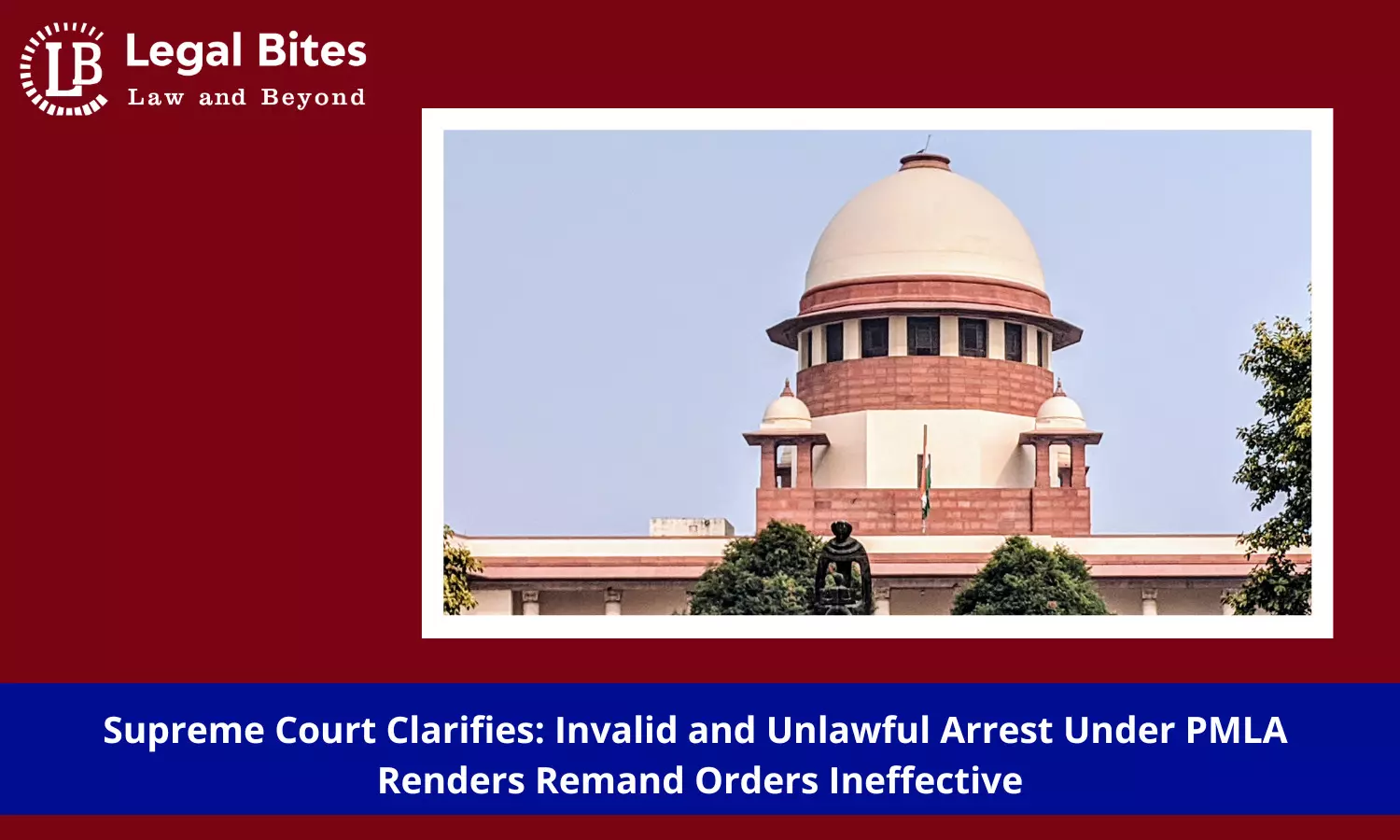Supreme Court Clarifies: Invalid and Unlawful Arrest Under PMLA Renders Remand Orders Ineffective
The Supreme Court, in the case of Pankaj Bansal v. Union of India & Ors, issued a significant ruling on Tuesday regarding the rights of individuals accused under the Prevention of Money Laundering Act (PMLA).

Supreme Court Clarifies: Invalid and Unlawful Arrest Under PMLA Renders Remand Orders Ineffective
The Supreme Court, in the case of Pankaj Bansal v. Union of India & Ors, issued a significant ruling on Tuesday regarding the rights of individuals accused under the Prevention of Money Laundering Act (PMLA). The bench, consisting of Justice AS Bopanna and Justice Sanjay Kumar, affirmed that individuals facing arrest have both constitutional and statutory entitlements to be provided with a written explanation of the grounds for their arrest.
The Court emphasised that merely verbally conveying the grounds of arrest would not satisfy the requirements of Article 22(1) of the Constitution and Section 19(1) of the PMLA. To fully uphold the constitutional and statutory obligations set forth in Section 19(1) of the Act, the Court mandated that a written copy of the grounds of arrest must be routinely and unconditionally provided to the arrested individual.
It's worth noting that this decision appears to introduce a minor modification to the previous three-judge Bench judgement in Vijay Madanlal Choudary & Ors v. Union of India. In the Vijay Madanlal case, the Court had ruled that supplying an Enforcement Case Information Report (ECIR) to the accused was not necessary, and it sufficed for the Enforcement Directorate (ED) to contemporaneously disclose the grounds for arrest verbally.
However, the Court clarified that such disclosure must be in written form, reiterating the importance of providing a written statement of the grounds for arrest to the accused.
In this context, the Court ordered the release of Pankaj Bansal and his father Basant Bansal, who are directors of the M3M Group, in a money laundering case related to bribery allegations against a former judicial officer in Haryana.
The Court underscored the expectation that the ED should act impartially and with the utmost fairness, avoiding any vindictive conduct. This is essential because the arrested person needs to be informed about the grounds for arrest, as they must later meet stringent bail conditions under Section 45 of the PMLA.
The Court noted that having knowledge of these facts allows the arrested individual to plead and demonstrate before the Special Court that there are grounds to believe they are not guilty of the offence, thus enabling them to seek bail.
If sensitive case information is present on the grounds of arrest, it can be redacted, and the accused can be provided with an edited copy, as per the Court's ruling.
The Court also highlighted regional disparities in the manner in which the grounds of arrest are conveyed to the accused. While some areas provide the grounds for writing, others rely on oral communication. The Court found this inconsistency unacceptable and emphasised the need for uniformity in conveying the grounds of arrest.
Moreover, the Court stated that if there is a dispute regarding whether the grounds of arrest were orally conveyed, it may become a matter of credibility between the arrested person and the authorised officer. Non-compliance in such cases would result in the immediate release of the arrested person, as held in the case of V Senthil Balaji.
In conclusion, disclosing the grounds of arrest in written form not only informs the arrested individual of the reasons for their arrest but also enables them to seek legal counsel and present a case for bail. By permitting authorities to merely orally convey the grounds, regardless of their length and detail, the constitutional and statutory protections would be rendered ineffective, as per the Court's ruling.
Click Here For Detailed Information

